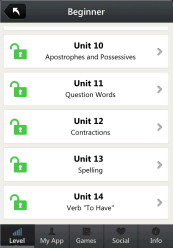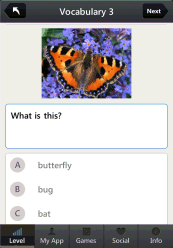English Grammar - Advanced
Third Conditional
Go To Quizzes >>> Conditionals
A third conditional sentence is comprised of two halves.
| If | + | Past Perfect | Then | Would have + Past Participle |
We use the third conditional to say what would have happened in the past.
We have seen how the zero conditional, the first conditional and the second conditional are all used to talk about possibility and result in the present and future. The third conditional is what we use to talk about the past.
Examples:
What would have you done if the boss had asked you to work overtime?
If my teacher had been stricter with me when I was young, I would have studied harder.
We would have gone for a picnic if the weather had been better.
Second or Third Conditional?
Compare these two sentences:
If I went to the party, I would be tired tomorrow.
If I had gone to the party, I would have been tired.
In the first sentence, we use the second conditional because the party is in the future and we are imagining what the situation would be. In the second sentence, the party is in the past. We didn't go but we are imagining what would have happened if we had gone to it.
Don't use would in the if part of the sentence. With if, we must use the past perfect:
If I had seen Hugo, I would have said hello.
NOT If I would have seen Hugo, ....
Mixed Conditionals
Go To Quizzes >>> Conditionals
Compare these two sentences:
If I had gone to the disco on Saturday night, I would have met Sarah.
If I had gone to the disco on Saturday night, I would be tired now.
In the first sentence, we use the third conditional - a past possible action with the past result.
In the second sentence however, we use a mixed third and second conditional to describe a past possible action (third conditional) with a present result (second conditional).
Look at these other possible situations:
If I had gone to university, my mother would have been happy.
If I had gone to university, I would be a lawyer now.
If we had gone to that new restaurant, we wouldn't have got a table as it was so busy.
If we had gone to that new restaurant, we wouldn't be hungry now.
English Learning Lounge - iOS and Android Apps |
||

|
Our app for both Android and iOS to help you improve your English!
|

|
Alternatives to "Would".
If it hadn't rained, we would have gone for a walk.
Here we are saying we definitely would have gone for a walk if it hadn't rained. No rain = walk. Now compare with this:
If it hadn't rained, we could have gone for a walk.
This is a little different and means that the possibility to go for a walk would have existed. No rain = possible walk.
If it hadn't rained, we might have gone for a walk.
Here the possibility is smaller still. No rain = maybe walk. We can also use "may" in this sentence.
